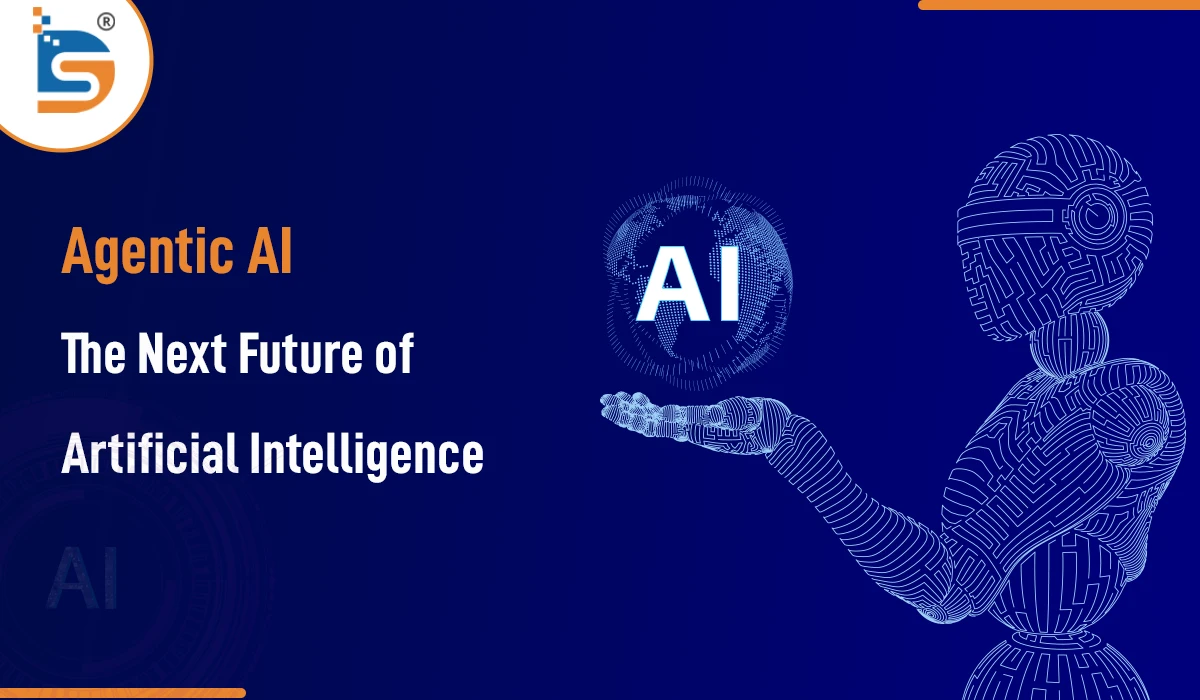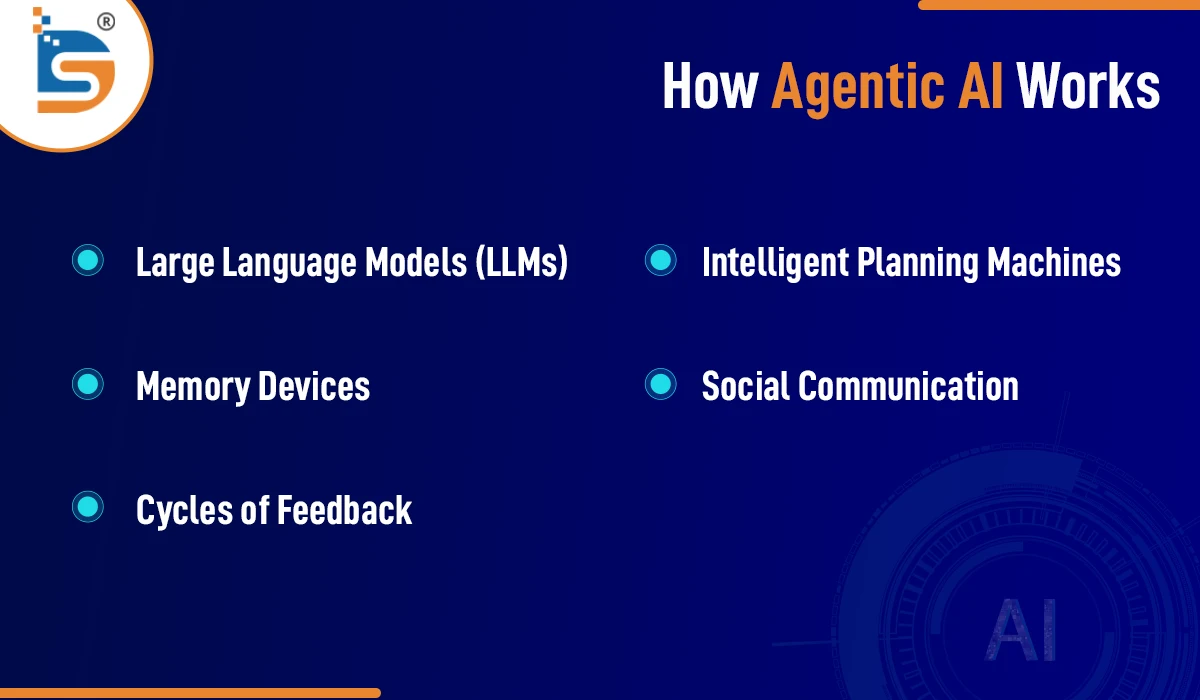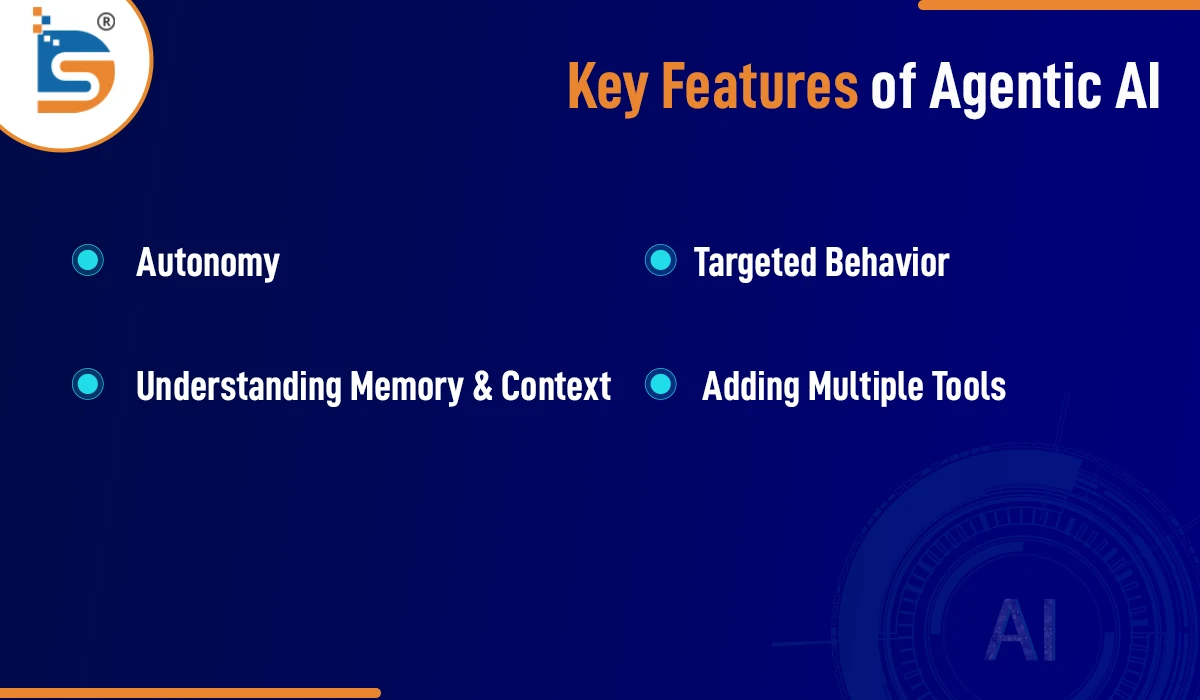Agentic AI: The Next Future of Artificial Intelligence
BY : Sdreatech
07-May-2025

Artificial Intelligence is not just analyzing pictures or guessing what project you'll like next. In the next few years, AI will become more autonomous, flexible, and human-like in its communications with the natural world. This is the beginning of agentic AI.
What is Agentic AI?
Agentic AI is a term for AI systems that act like agents, which are things that can set goals, create choices, and act on those decisions. Traditional AI models either follow pre-set instructions or respond based on sequences. Agentic systems, on the other hand, act on purpose and change based on the situation.
They can not only respond to inquiries but also make them, generate plans, collect data, work together, and carry out tasks with a minimum of supervision from a human.
How Agentic AI Works

Many important technologies and frameworks are used together in agentic AI systems. Such as...
1) Large Language Models (LLMs)
They act as the "brain" and is capable of understanding, reasoning, and producing human-like text.
2) Intelligent Planning Machines
With these tools, the AI will break down requirements into tasks and put them in a way that makes logical.
3) Memory Devices
Long-term and short-term memories help us understand what's going on around us gradually.
4) Social Communication
The AI can act in the real world with the help of APIs, web access, devices, or tools like web browsers and databases.
5) Cycles of Feedback
Agents think about what happened, fix their errors, and change how they act to get better continuously.
Key Features of Agentic AI

1) Autonomy
Agentic AI can work toward goals on its own, without constant human guidance. It can set priorities, adapt to new situations, and even fix mistakes.
2) Targeted Behavior
It aims to achieve targets rather than just follow instructions. That means thinking about the next steps, checking in on progress, and executing last-minute changes to strategies.
3) Understanding Memory and Context
Like a human assistant, AI agents can remember how they communication with people in the past, learn from past experiences, and apply what happened to help them decide in the future.
4) Adding Multiple Tools
Using APIs, databases, apps, and even actual devices, agentic AI can complete difficult tasks from beginning to end.
Why Agentic AI Matters
Our perspective on automation and intelligence has witnessed a major shift with the transition from task-based to agent-based AI. There is less of a difference between the tool and those who are working with it.
AI will not only be the inactive assistant in the future, it will also be a creative problem solver, strategist, and even innovator as these systems get better.
Final Thoughts
Agentic AI is the beginning of a new era where devices don't just help but also start activities, collaboration, and change with us. When these systems get smarter and more independent, they open up a huge amount of opportunity in many fields, from handling complicated tasks to assisting humans more innovative.
So that AI agents work for the benefit of all people, it will be important to make sure they are trustworthy, aligned, and properly led.